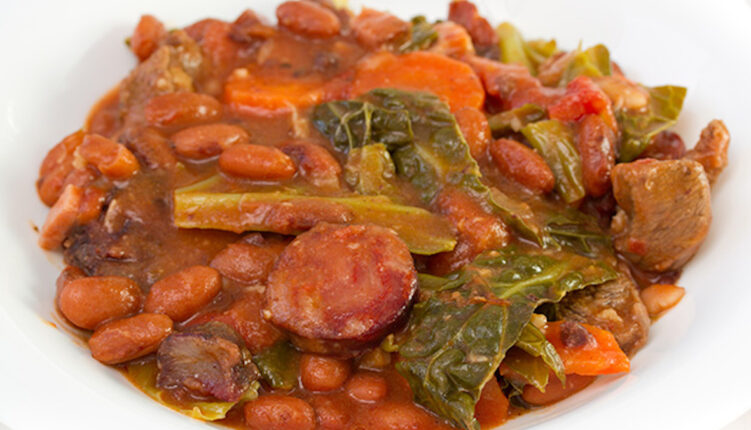Food is known as a universal language, traversing cultures and the spoken word — we can also learn a lot about a country’s history through its cuisine.
Portuguese cuisine is quite different from its neighbour’s, Spain. With strong French and Mediterranean influences, Portuguese cuisine retains both Celtic and Moorish links such as one-pot cooking and the preservation of food such as salting, smoking and pickling.
Also, Portugal’s spice trade played a big part in widening the choice of flavourings. White and black pepper, piri piri, paprika, clove, allspice, cumin and nutmeg are all used in meat, fish and multiple other savoury dishes.
At its heart is olive oil, used to flavour cooked and uncooked dishes. It has been found to contain antioxidants and has also been shown, in laboratory studies, to possess several anti-cancer properties.
Of course, with its link to the Atlantic, seafood is also high on the menu including octopus and squid.
Feijoada – pork and bean stew
A versatile recipe from Brazil is a simple dish called feijoada. Originally a black bean stew, it is made in Portugal traditionally with different cuts of pork and chouriço (smoked pork sausage). An alternative uses white beans rather than the usual kidney beans. The dish can be found wherever the Portuguese once ruled; Angola, Mozambique, Timor, Goa and Cape Verde for example.
Feijoada is quite simple to make but most northern Europeans don’t like the idea of eating pig’s ear or trotters (both adding flavour, richness and substance).
We have found three easy recipes for you to try. A variety in meat choice is the essence of this dish however, if you find it hard to include ingredients such as trotters or pig’s ear then omit them.
For the traditional dish, using kidney beans, click here, for a Transmontana recipe, click here and finally, for a white bean alternative click here.
Image: Courtesy of Pingo Doce


3 thoughts on “Portuguese cuisine – feijoada”